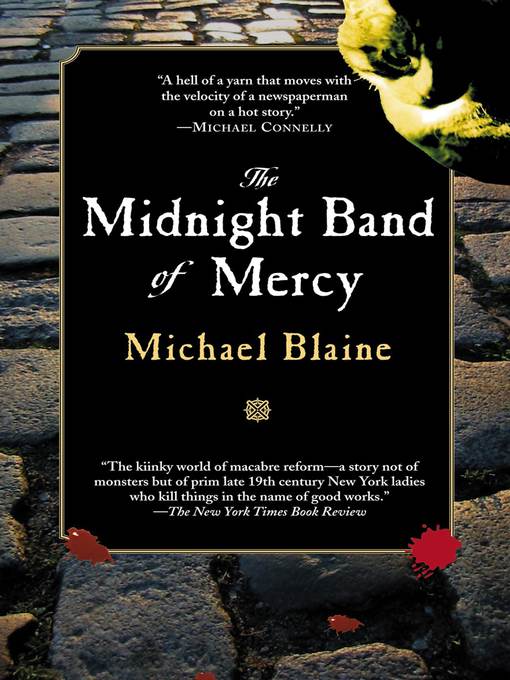
The Midnight Band of Mercy
کتاب های مرتبط
- اطلاعات
- نقد و بررسی
- دیدگاه کاربران
نقد و بررسی

August 2, 2004
Max Greengrass, the hero of this engaging mystery by Blaine (The Desperate Season
), has much in common with David Liss's hero Benjamin Weaver. Both are Jews in a world of gentiles: for Weaver, it's 18th-century London, for Greengrass, the sidewalks and saloons of lower Manhattan in 1893. Both are ex-prize fighters, as well as amateur detectives, whose murder investigations take place against a background of real and imagined events and uncover plots surprisingly sinister and far-reaching. Max is a young freelance reporter ("a space-rater") at the New York Herald
, and his future hangs on getting a good story. When he finds four dead cats arranged in a row on a Greenwich Village sidewalk, and soon learns of more murdered felines, he's got a good scoop. After the Herald
publishes his catricide story, Greengrass continues to nose around. When his most promising lead turns up dead, as does a witness to that murder, Greengrass's widening investigations introduce the reporter—and the reader—to a colorful mix of real and fictional politicians, religious figures, reformers, journalists and power brokers. Blaine's portrait of Manhattan in 1893 is striking both for what doesn't exist yet (sanitation, most graphically) and what does: Pete's Tavern on Irving Place, expensive dinners at the Waldorf, the Staten Island Ferry, Bellevue Hospital. The 19th-century local color makes a good mystery even more enjoyable. Agent, Sally Wofford-Girand.

September 1, 2004
In 1893, Max Greengrass, a starving hack reporter for the New York Herald, comes across a strange series of cat killings in Greenwich Village. This odd case sparks a startling investigation that leads him from the city's slums to the haunts of the rich and powerful. As the clues fall into place, Greengrass fights with his editor and hangs on to a thread of desire with two different loves. Desperate to keep his job, he begins to unravel a plot that involves a progressive preacher, underworld criminals, corrupt lawyers, and the group of reformist women referred to in the title. Soon he's flushing out stories and clues, feeding his addiction for newspaper writing as he races to meet his deadlines. Blaine (The Desperate Season) makes this addiction palpable. As in Caleb Carr's The Alienist, this period of history is seamlessly woven into the fabric of a compelling and well-crafted plot. Recommended for all public libraries. Ron Samul, New London, CT
Copyright 2004 Library Journal, LLC Used with permission.

























دیدگاه کاربران